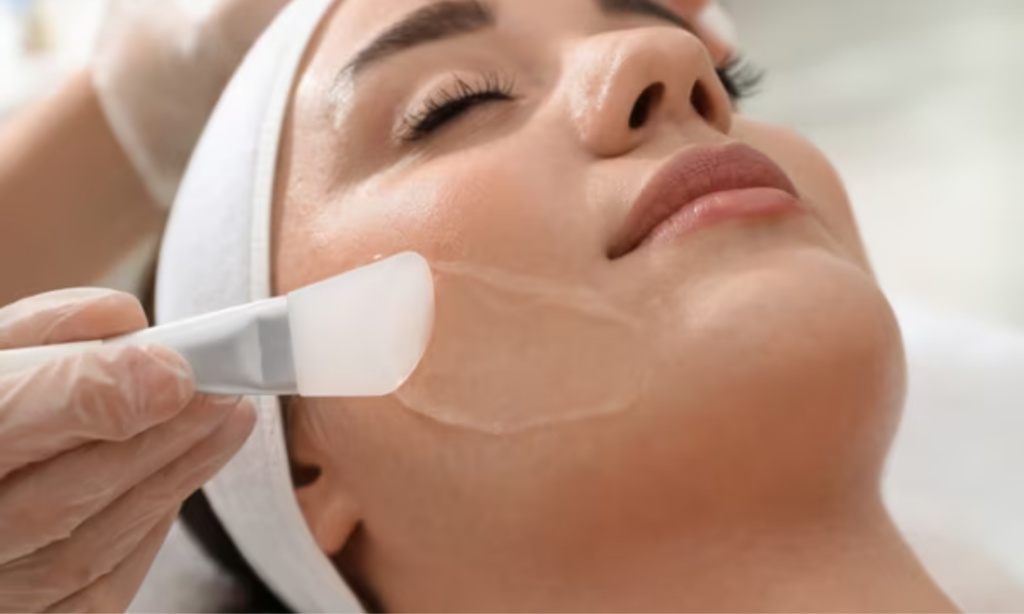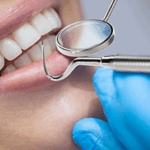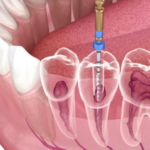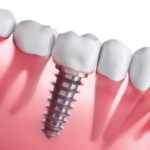
Acne and acne scars can significantly impact an individual’s confidence and self-esteem. While various treatments are available to address these skin concerns, chemical peels have emerged as one of the most effective and widely used solutions. By exfoliating the skin and promoting the regeneration of new, healthy cells, chemical peels help to improve skin texture, reduce acne breakouts, and diminish the appearance of scars. In this blog, we will explore how chemical peels work, their benefits for acne-prone skin, and why they are an excellent option for scar reduction.
Understanding Chemical Peels
Chemical peels are dermatological treatments that involve the application of a chemical solution to the skin, causing the outermost layers to peel off. This process stimulates the production of new skin cells, resulting in a smoother and more even complexion. Chemical peels are categorized into three types based on their intensity:
- Superficial Peels – These mild peels use alpha-hydroxy acids (AHAs) or beta-hydroxy acids (BHAs) like glycolic or salicylic acid. They target the outermost layer of the skin, making them ideal for mild acne and surface-level scars.
- Medium Peels – Using stronger acids like trichloroacetic acid (TCA), medium peels penetrate deeper into the skin, effectively treating moderate acne scars and pigmentation issues.
- Deep Peels – Phenol-based deep peels provide the most dramatic results, effectively treating severe acne scars. However, they require more downtime and are generally recommended for more serious skin concerns.
How Chemical Peels Help with Acne
1. Exfoliation and Unclogging Pores
One of the primary causes of acne is clogged pores, which lead to inflammation and breakouts. Chemical peels help to remove dead skin cells, excess oil, and debris from the skin’s surface, preventing pores from getting clogged. This process reduces the formation of blackheads, whiteheads, and pimples.
2. Reduction of Bacterial Growth
Acne is often aggravated by the presence of bacteria, particularly Propionibacterium acnes. Chemical peels, especially those containing salicylic acid, have antibacterial properties that help eliminate acne-causing bacteria. This reduces the frequency and severity of breakouts.
3. Regulation of Sebum Production
Excess oil production is a major contributor to acne. Chemical peels help regulate sebum (oil) production, preventing excessive oiliness that can lead to new breakouts. By maintaining a balanced oil level, peels reduce the chances of future acne flare-ups.
How Chemical Peels Help with Acne Scars
1. Stimulating Collagen Production
Collagen is an essential protein that helps maintain skin elasticity and firmness. Acne scars, particularly atrophic scars (depressed scars), occur due to collagen loss. Chemical peels stimulate collagen production, helping to fill in these scars over time and improve skin texture.
2. Evening Out Skin Tone
Hyperpigmentation and dark spots left behind by acne can make the skin look uneven. Chemical peels work by accelerating cell turnover, helping to fade dark spots and discoloration, resulting in a more uniform complexion.
3. Smoothing Rough Skin Texture
By removing the damaged outer layers of skin, chemical peels promote the growth of smoother and healthier skin. This makes them an excellent option for individuals dealing with rough, pitted acne scars.
Who Can Benefit from Chemical Peels for Acne and Scarring?
Chemical peels are suitable for individuals dealing with:
- Persistent acne that does not respond well to topical treatments.
- Mild to moderate acne scars.
- Uneven skin tone and hyperpigmentation.
- Oily or acne-prone skin.
- Clogged pores and frequent breakouts.
However, individuals with very sensitive skin or active skin infections should consult a professional before opting for the treatment.
Aftercare and Maintenance
After a chemical peel, proper skincare is essential to achieve optimal results and prevent complications. Here are some aftercare tips:
- Avoid Sun Exposure: The skin is highly sensitive after a peel. Use a broad-spectrum sunscreen to protect it from harmful UV rays.
- Moisturize Regularly: Keeping the skin hydrated aids in the healing process and prevents excessive dryness or irritation.
- Follow the Professional’s Advice: Every individual’s skin is different, so it is important to follow the dermatologist’s or cosmetologist’s specific post-treatment instructions.
- Use Gentle Skincare Products: Harsh products can irritate the skin post-peel, so opt for mild cleansers and moisturizers.
Summary:
Chemical peels are a powerful solution for treating acne and reducing scars. By exfoliating the skin, promoting collagen production, and reducing bacteria, they help individuals achieve a clearer and smoother complexion. Whether you are struggling with active acne or dealing with lingering scars, chemical peels can significantly enhance your skin’s appearance when performed by a qualified professional.
At Dentaverse Clinic in Kharadi, Pune, we offer advanced chemical peel treatments tailored to your skin type and concerns. Under the expertise of Dr. Anjali Mendhe, a highly skilled dentist and cosmetologist in Pune, you can achieve glowing, blemish-free skin. If you are looking for expert cosmetology treatments in Kharadi, book your consultation with us today and take the first step toward healthier, more radiant skin!




